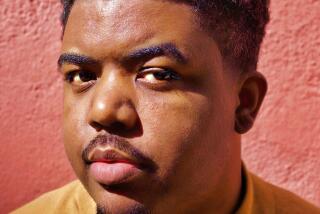And So Crack Claims Another Life
- Share via
Richard Winrow, 22, of South-Central Los Angeles has been sentenced to life in prison without parole for possessing 5.5 ounces of crack cocaine. The federal judge had no choice. Congress, confronted with a national drug emergency, fixed the harsh sentence for repeat narcotics offenders in cement. But more than stiff sentences are needed to solve the drug crisis. Programs that address demand, rehabilitation and prevention deserve equal emphasis, and equal funding.
Earlier this year President Bush increased spending on narcotics to $8 billion. Nearly 70% of the money is earmarked for law enforcement. Public safety demands adequate law enforcement aimed at drug lords and their foot soldiers. But adequate treatment and education are just as essential: In the long run, prevention is the best cure for drug addiction.
Demand drives the drug trade. If no one smokes crack or snorts cocaine, no one sells it. No demand translates into no drug trade, no murderous dealers carrying automatic weapons, no wasted lives. Drug sales, no matter how small, are at the heart of the crisis.
All drug users prop up the illicit market, and nurture the violence. The teen-ager who buys a couple of rocks in South-Central Los Angeles and the businessman who buys a couple of grams in Beverly Hills are equally culpable. But if the crime is the same for both, their recourse is not: Affluent users can enroll in private programs; poor users--those who smoke their lives away $5 at a time--often wait months for treatment. Of course treatment is still one huge gray area: Even the most expensive cocaine rehabilitation programs are not certain to work. Even so, help must be widely accessible to curtail the growing number of victims.
Winrow is the second person in the nation and the first in California sentenced under the tough federal drug-trafficking law. The gang member was caught with the crack, a loaded .357-caliber pistol and $3,209 in cash. Had he been tried in state court, he would have faced a maximum of four years in prison. The federal conviction resulted in a sentence far harsher than what some murderers and rapists get. Life without parole is a harsh sentence; some would say cruel. So is the trail of death, destruction and violence that cocaine leaves behind.
More to Read
Sign up for Essential California
The most important California stories and recommendations in your inbox every morning.
You may occasionally receive promotional content from the Los Angeles Times.













